In March 2018, India raised the import tax on crude palm oil to 44% from 30% and hiked the tax on refined palm oil to 54% from 40%. The fourth increase in import tax in less than 6 months – the highest level in more than a decade – was to protect the country’s local rapeseed crop. India imports palm oil from Indonesia and Malaysia and soyoil from Brazil and Argentina.
The increase in the tariff was so damaging that Malaysia had to appeal to India, a nation with a 1.32 billion population and the world’s largest importer of edible oil. As a result of the hike, palm oil became 15%-20% costlier in India, making it cheaper to purchase soybean oil and rapeseed oil as the import duty on these oils was lower as compared to palm oil.
The duty hike led to a slowdown in palm oil imports in May 2018, while the inflow of sunflower and soybean oils increased. For the first time in the history, the share of palm oils in the overall vegetable oils has dropped to 40%, from around 58%-70%. India relies on imports for 70% of its edible oil consumption and is the world biggest importer of palm oil.
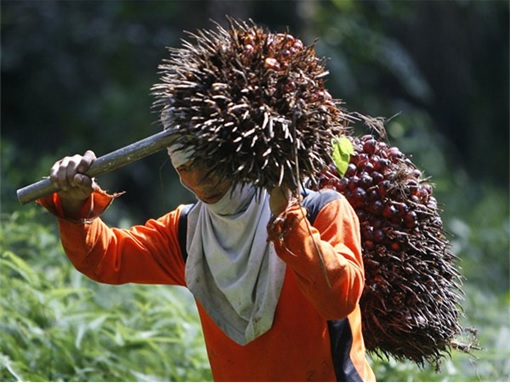
Thanks to the high import tax, India’s palm oil imports in June 2018 plunged 41% from a year earlier to their lowest in nearly 4 and a half years. The country imported only 487,147 tonnes of palm oil in that month – the lowest since February 2014. Coincidentally, the plunging palm oil prices hit “Felda settlers”, the primary vote bank critical to former Prime Minister Najib Razak.
Najib lost in the May 2018 general election partly because Felda settlers suffered tremendously due to the low price of palm oil, which dropped from above RM3,000 / ton in early 2017 to below RM2,500 / ton in 2018. The privatization of Felda and the public listing of its subsidiary Felda Global Ventures (FGV), not to mention multiple scandals, had turned the settlers against Najib.
In January this year, 7 months after the downfall of Najib regime, India suddenly cut import taxes on crude and refined palm oil. The duty on crude palm oil was lowered to 40% from 44%, while a tax on the refined variety was cut to 50% from 54% – after Indonesia and Malaysia, the top two palm oil producers in the Southeast Asia, sought a reduction in the import tax.
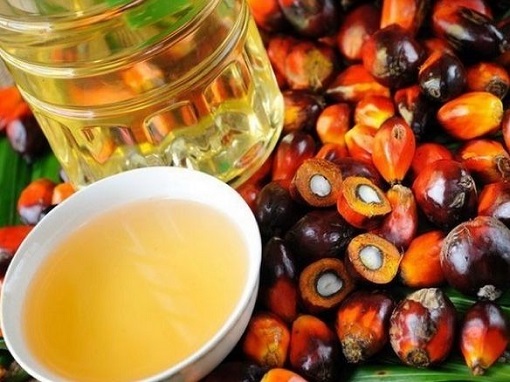
Although the 4% tax reduction introduced in January 2019 was low as compared to the 14% tax increase slapped in March 2018, the effect was positive. India’s palm oil imports jumped 65% to 818,149 tonnes in May 2019 from a year earlier. What many didn’t know is that unlike Indonesia, Malaysia enjoys another 5% less import tax due to the special relationship between India and the country.
So, while rival Indonesia is subjected to 50% tax on refined palm oil, Malaysia’s tariff is only 45%, thanks to a Comprehensive Economic Cooperation Agreement (CECA) signed between both countries. Although Indonesia exports more palm oil to India, it is losing out to Malaysia because its neighbouring Malaysia enjoys lower tariffs.
The special relationship between Malaysia and India has made Indonesia demanded for the same fair treatment. Indonesia has asked India to cut its tariff on refined palm oil to 45%, matching the levy faced by rival producer Malaysia. In return, Jakarta is willing to open up its market access for raw sugar from India (Indonesia now imported raw sugar from Thailand and Australia).
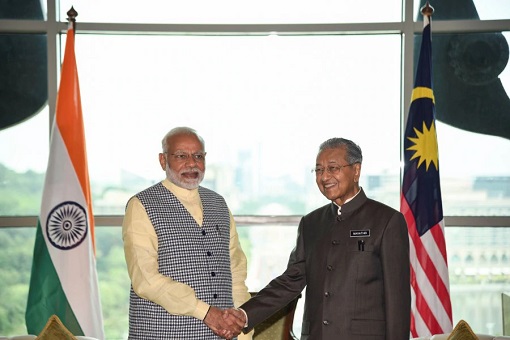
Malaysia and India enjoy a special relationship that Indonesia does not largely because ethnic Indians in Malaysia mostly are descendants of those who migrated from India during the British colonisation of Malaya. Numbering more than 2-million (7%), Malaysian Indians constituted the third largest ethnic group in the country, and forms the 5th largest community of “Overseas Indians” in the world.
However, according to Bloomberg, India is now seriously considering raising import duties on refined palm oil from Malaysia from 45% currently to 50% – the same as the duty imposed on the commodity from Indonesia. Apparently, India’s Finance and Trade Ministries wanted the 5% price differential between Malaysian and Indonesian refined palm oil to be eliminated.
Although Dr Kalyana Sundram, CEO of Malaysian Palm Oil Council (MPOC), insisted that Malaysia will continue to enjoy preferential tariffs, he could not guarantee it. The best Mr. Kalyana could offer was that the MPOC has yet to receive an official statement from the Indian government – suggesting that there’s a possibility the special discount would be gone.
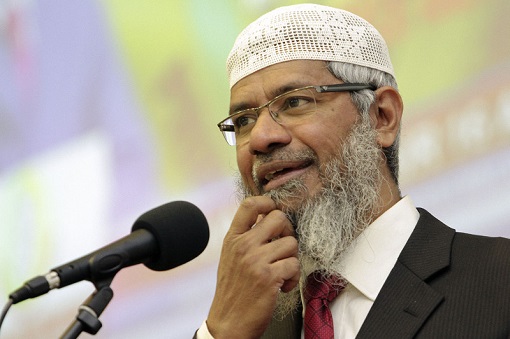
But why does the Government of India want to remove the 5% preferential tariff currently enjoyed by Malaysia after close to 10 years? There could be one possibility – Zakir Naik – the controversial Indian Islamic preacher accused of spreading hate speech, laundering money, and funding terrorism by the Indian government but is being protected by Malaysian government.
India’s Enforcement Directorate (ED) has accused the controversial Muslim preacher or money laundering – using his Islamic Research Foundation, meant for the social welfare of the Muslim community, to organise dubious donations and diverted the proceeds to purchase properties. Zakir Naik allegedly diverted assets worth RM113 million (US$28 million).
The Times of India reported that those assets included at least 20 flats in the cities of Mumbai and Pune in India. The India’s ED had on March 21 arrested jeweller Abdul Kadir Najmudin Sathak, an aide of 53-year-old Zakir, for allegedly assisting him to transfer funds of dubious origins from the UAE to him.
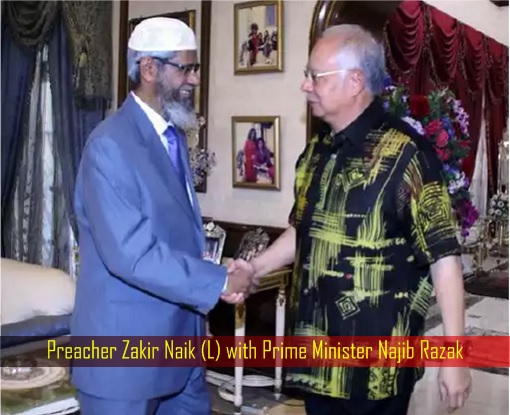
While Zakir is a wanted man in India, having had his citizenship revoked, he was granted permanent resident by former Prime Minister of Malaysia, Najib Razak. When the new government of Mahathir Mohamad took over, the new prime minister surprisingly said that Malaysia would not deport Zakir “as long as he is not creating any problems” in the country.
In the Sri Lanka Easter bombings in April 2019, NTJ’s leader and “bombing mastermind” Moulvi Zahrin Hasim was believed to have had been inspired by Zakir. Moulvi had posted several YouTube videos during which he preaches comments that could be considered incitement. In one of his videos, the radical Muslim extremist says – “What can Sri Lankan Muslims do for Dr. Zakir Naik?”
Zakir Naik, whose sermons are already banned in Canada and the UK, was popularly known as the Muslim preacher who inspired the terrorists who killed 22 people at a Dhaka restaurant on July 1, 2016. In one sermon uploaded to YouTube in 2009, he was asked by an audience member if a suicide attack could ever be justified.
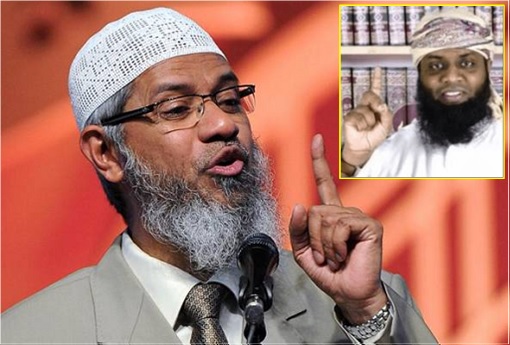
Mr. Zakir once controversially said that suicide bombing may not be “haram (forbidden” if the situation demands it, justifying the situation where suicide attacks are allowed – “If the situation demands, like in Palestine … and they cause a damage to the opponent, as a last resort, with guidance from a scholar, so with guidance from the Koran, as a last resort, it can be used”.
The preacher had once claimed that Al-Qaeda leader Osama bin Laden was not a terrorist. He said – “If Osama-bin-Laden is fighting enemies of Islam, I am for him. If he is terrorising America – the terrorist, biggest terrorist – I am with him. Every Muslim should be a terrorist. The thing is that if he is terrorising the terrorist, he is following Islam.”
The snake oil salesman also justified keeping sex slaves, claiming such practice are permitted in Islam. He said in 2010 – “There are many verses in the Quran which say you can have sex with your wife and with whatever your right hand possesses.” In June, Malaysia admitted of having received an application from India to extradite Zakir Naik, an Indian national.
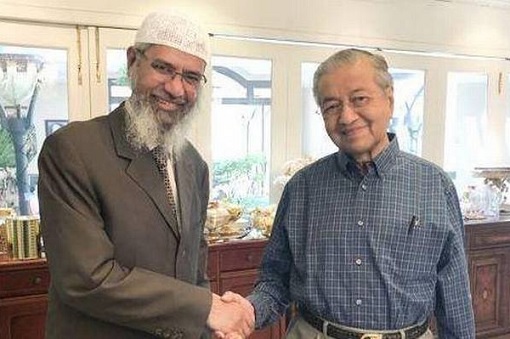
However, PM Mahathir decided to ignore India’s request and keeps harbouring Zakir, a popular figure in Muslim-majority Malaysia. On June 10, the defiant Mahathir made it known that he won’t send Mr. Zakir back to India even if requested by New Delhi. When asked by journalists, Mahathir said – “Zakir in general feels that he is not going to get a fair trial (in India).”
The 94-year-old Mahathir, comically, likened his stance to how Australia declined to send back a Malaysian fugitive, Sirul Azhar Umar, as Canberra was worried that the man would be hanged in Malaysia. Mr. Sirul, a former Malaysian police commando who was sentenced to death in 2015 for the murder of Mongolian model Altantuya Shaariibuu, managed to escape to Australia.
Australia has refused to send Sirul back to Malaysia, which practises capital punishment. Zakir, on the other hand, has not even been arrested by the Indian government, let alone put on trial. Hence, Mahathir’s attempt in comparing Sirul and Zakir was laughable. But the premier’s decision was not surprising as Malaysia is considered a popular terrorist breeding ground in the region.

The following day after Mahathir said Malaysia “has a right not to extradite” the wanted fugitive, Zakir Naik reportedly saying he would willingly accept the extradition to India if its Supreme Court gave a written assurance he would not be arrested or jailed pending conviction – suggesting that he must be granted special privilege.
By June 13, 2019, the government of India has made a formal request to the Malaysian government to send back its citizen – Zakir Naik – to face money laundering charges. The Indian Ministry of External Affairs said that India’s justice system has never been questioned, in response to Zakir’s allegations that he would not be accorded a fair hearing if he returned home
A special Prevention of Money Laundering Act (PMLA) court in Mumbai, India, has ordered Zakir Naik to physically appear before it on July 31. The court said that a non-bailable warrant would be issued against the preacher if he fails to appear before it. It’s worth to note that Malaysia and India have an extradition treaty signed in January 2010.
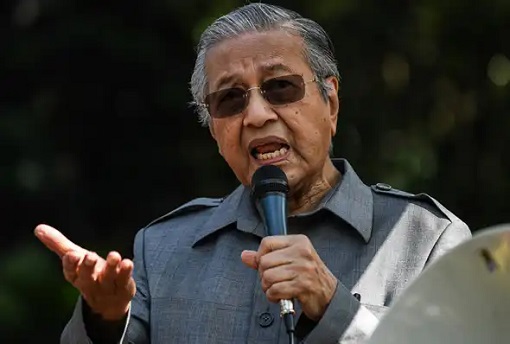
Sure, India might be powerless if the Mahathir administration stubbornly chooses to protect Zakir, and in the process jeopardise the special warm relationship between both nations. But there’re many ways to skin a cat. It’s definitely not a coincidence if India decides to teach Malaysia a lesson by removing the 5% preferential tariff.
According to a research report from Public Investment Bank (PIB), the proposed move to raise the tariff on Malaysian palm oil to 50% from the current 45% would result in significant losses to Malaysian palm oil exporters. It will put more pressure on Malaysian palm oil inventories in the coming months, as the second half production is expected to be seasonally higher.
Already, the average CPO price stood at RM1,980 per metric tonnes, down 17.6% year-on-year. Malaysia exported as much as 28% of total palm oil to India in the first half of this year. As the country is saddled with high stockpiles and bearish overall sentiments, the last thing Mahathir needs is an additional 5% tax. But that’s the price to pay for arrogantly wanting to harbour a crook in preacher’s clothing.
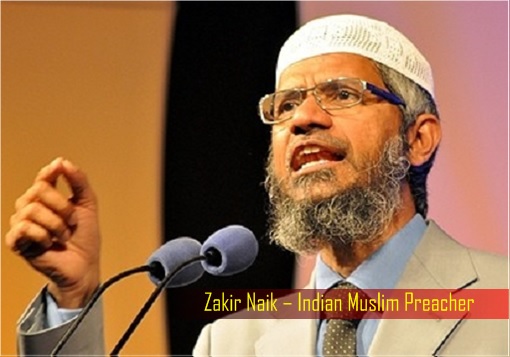
Other Articles That May Interest You …
- Sri Lanka Terror Attack Mastermind Identified – Was He Inspired By Preacher Zakir Naik?
- Look Who’s Talking – Ultra Racist UMNO Leaders Slammed Racist Australian Senator
- Terrorists Prefer Malaysia – A Breeding Ground For Terror Groups Due To Excessive Extremism
- Trump Cuts Funding – Palestine Losses $230 Million Aid Used To “Encourage Terrorism”
- Australia To Extradite Killer Sirul – Forget 1MDB, Najib & Rosmah Should Be Very Afraid Of Altantuya
- War On Terrorist-Sponsor Countries – Trump Cuts $255 Million Aid To Pakistan
- Istanbul Attack – It Doesn’t Pay To Play And Befriend Terrorists
- Snake Oil Salesman Zakir Naik – Preaching Muslims vs Non-Muslims

|
|
July 19th, 2019 by financetwitter
|


|

|

|

|

|

|
Comments
Due to Zakir Naik malaysia loosing exports of pam oil and actually india wans that zakir naik eagerly but malaysia not responds and also india wants zero terrorism policy due to these reasons malaysia not responds properly so india immediately stepdown imports of pam oil. Many edible oil business people are hindus they called shets 7 NAIDUS. in south indian states are karnataka lindayat shets business people,,maharashtra-maratha busness people andhra pradesh-naidu people,tamil nadu-naidu business people are totally offset due to zakir naik.In south india Temples are too they use oil of lamps in temples and pam oil is cheaper as compare to groundnut oil,sunflower oil,coconut oil.
If malaysia send him to india definitely pam oil export goes peak level and malaysian economy go top level
regards
bharat
Zakir Naik beaten on malaysian farmers stomach. No earning of him in malaysia physically and mentally. simply giving food is waste to non earners.
India is a cultured country using pam oil in temples and deepavali and other indian festivals.It is regular business to malaysia and helps to malaysian pam tree grower farmers.Here the matter is not a issue of kashmir. Kashmir issue already solved its internal matter. But Zakir naik issue is pending because he has created big noise in india and created many terror organisations indirectly. As a dangerous man Zakir Naik shining in malaysia is really surprizing.
HOw long zakir naik there in malaysia its big problem to malaysians better kick him out and send him to india is good for malaysia.




























Zakir is only wanted in India for money laundering charges. He is not charged with anything in the UK Canada Bangladesh and Sri Lanka as the writer “alleged”. This is wrong on the writers part. Be